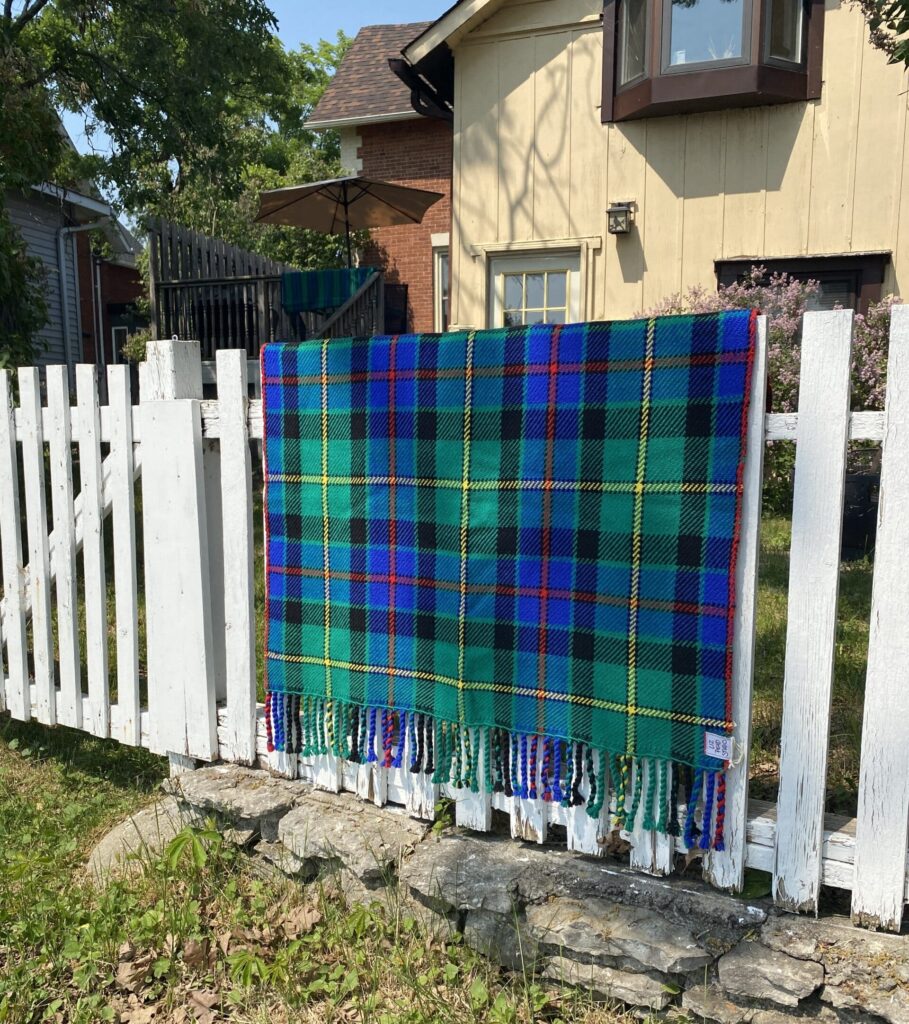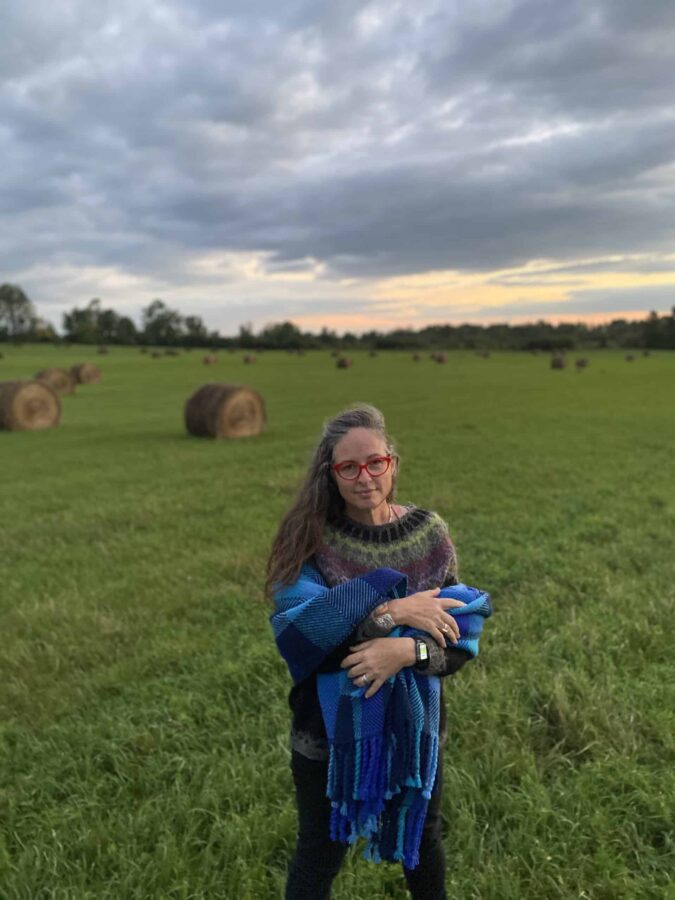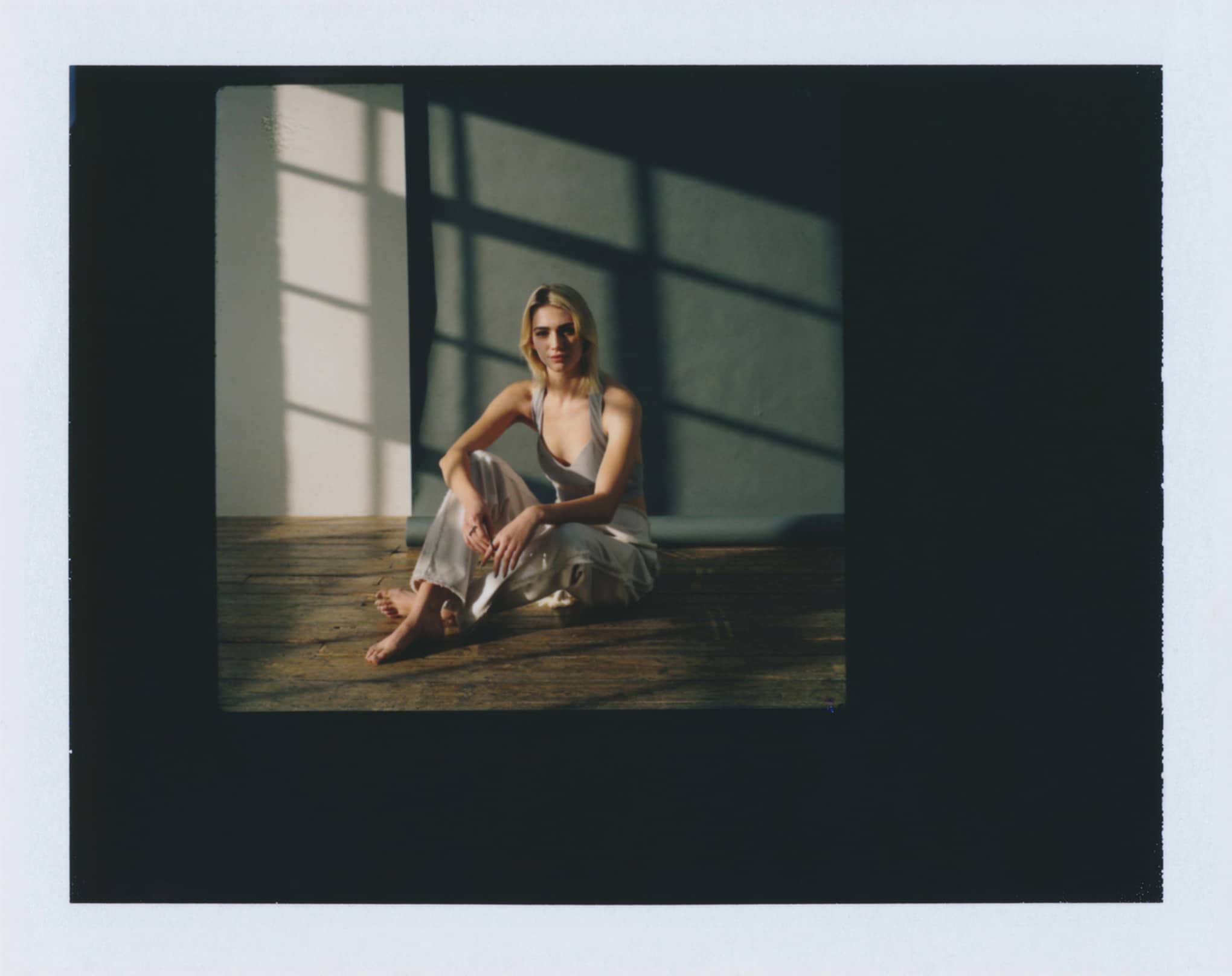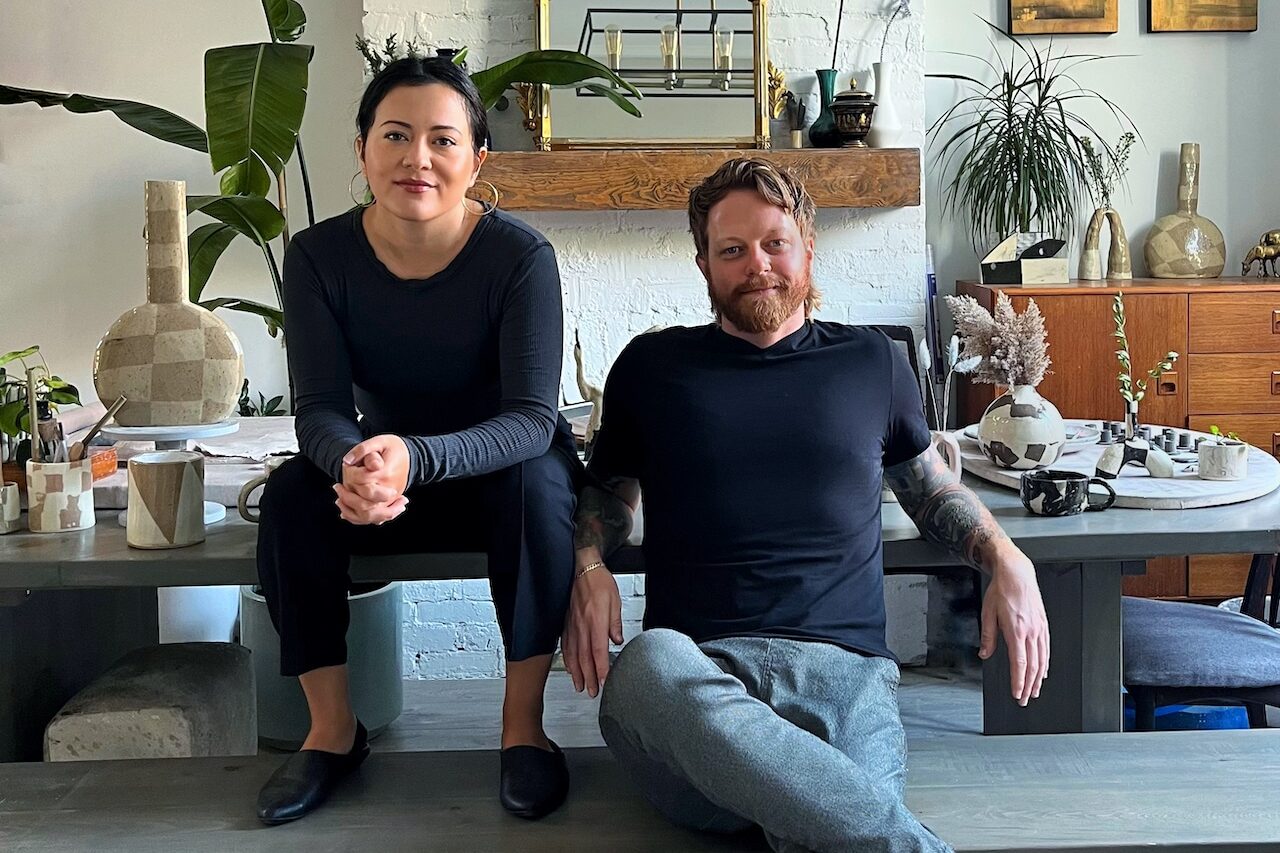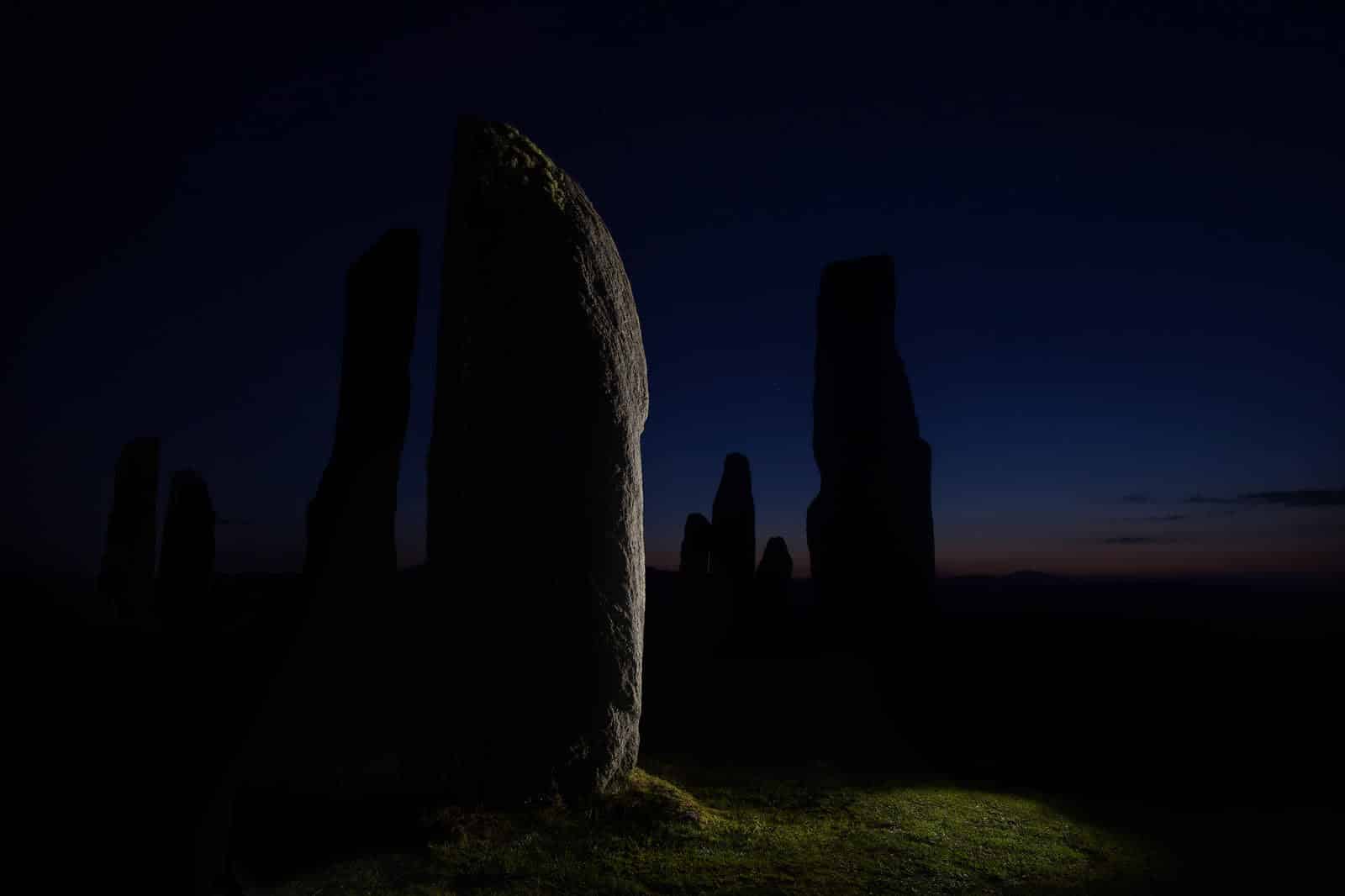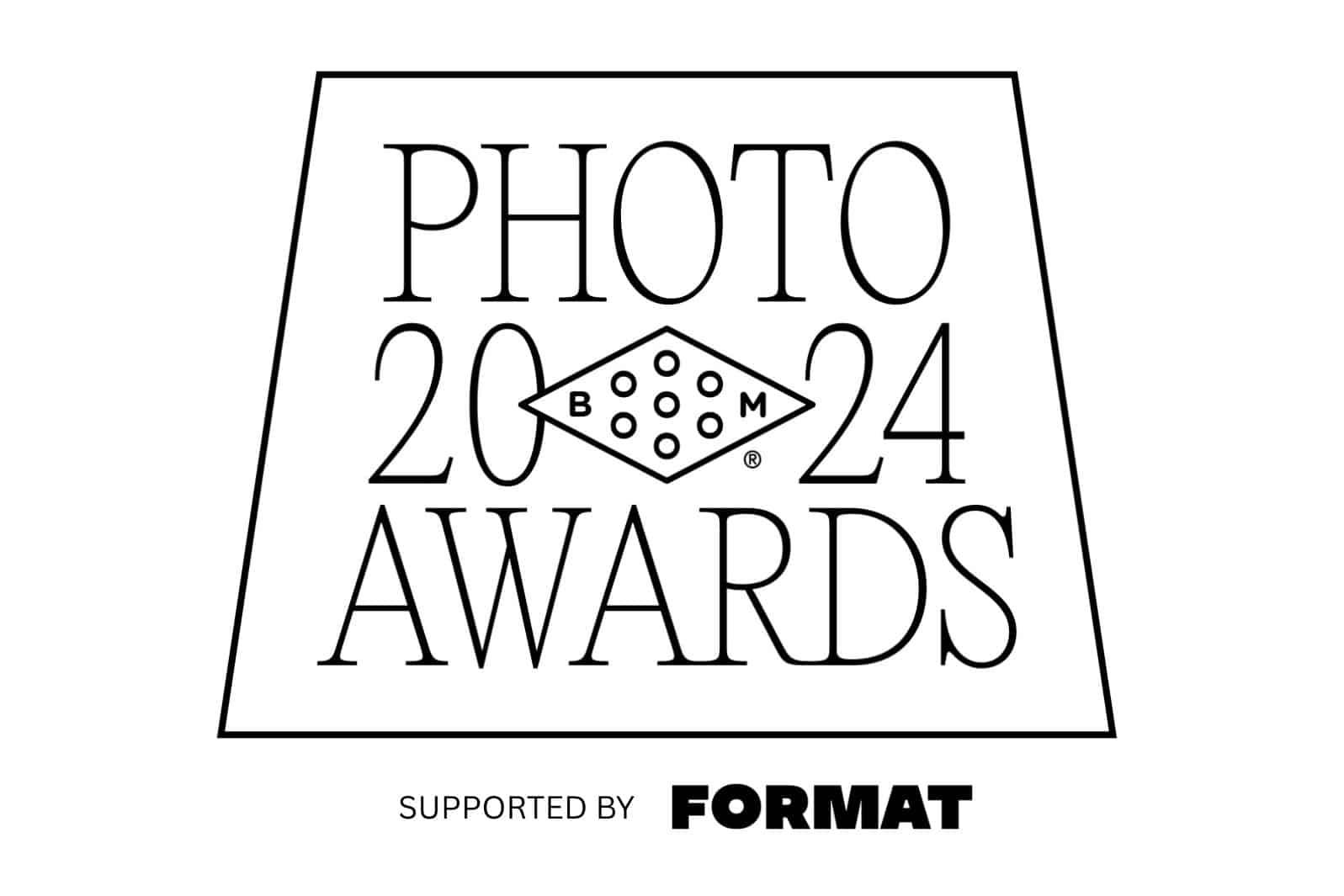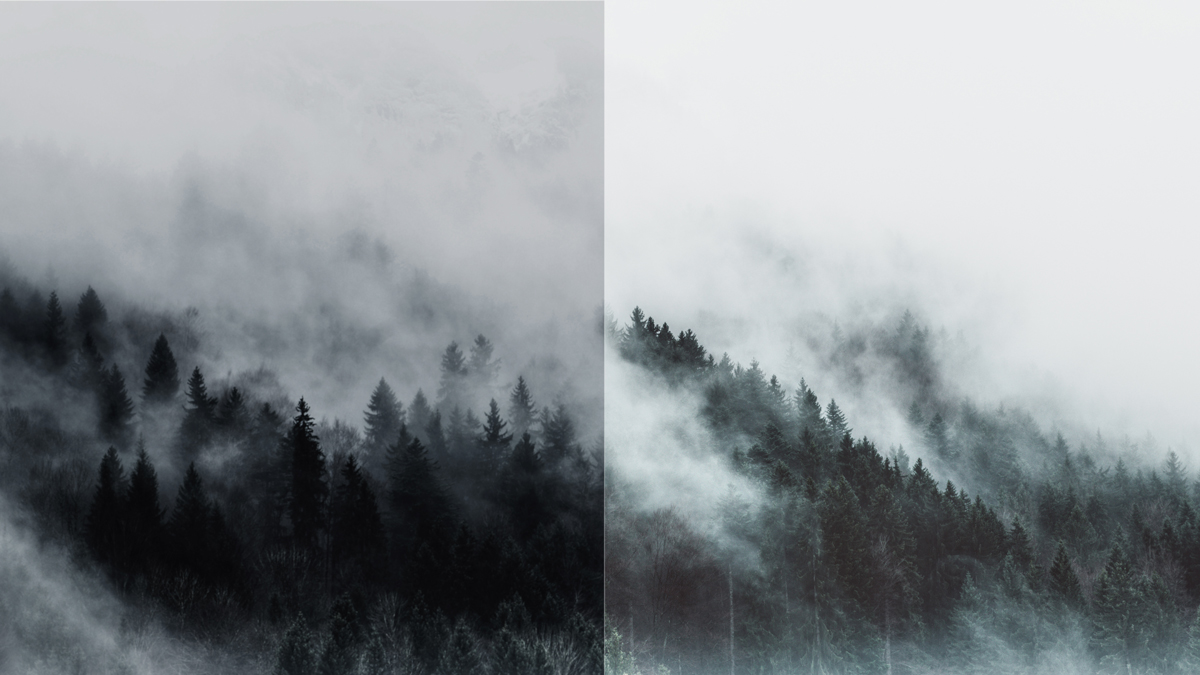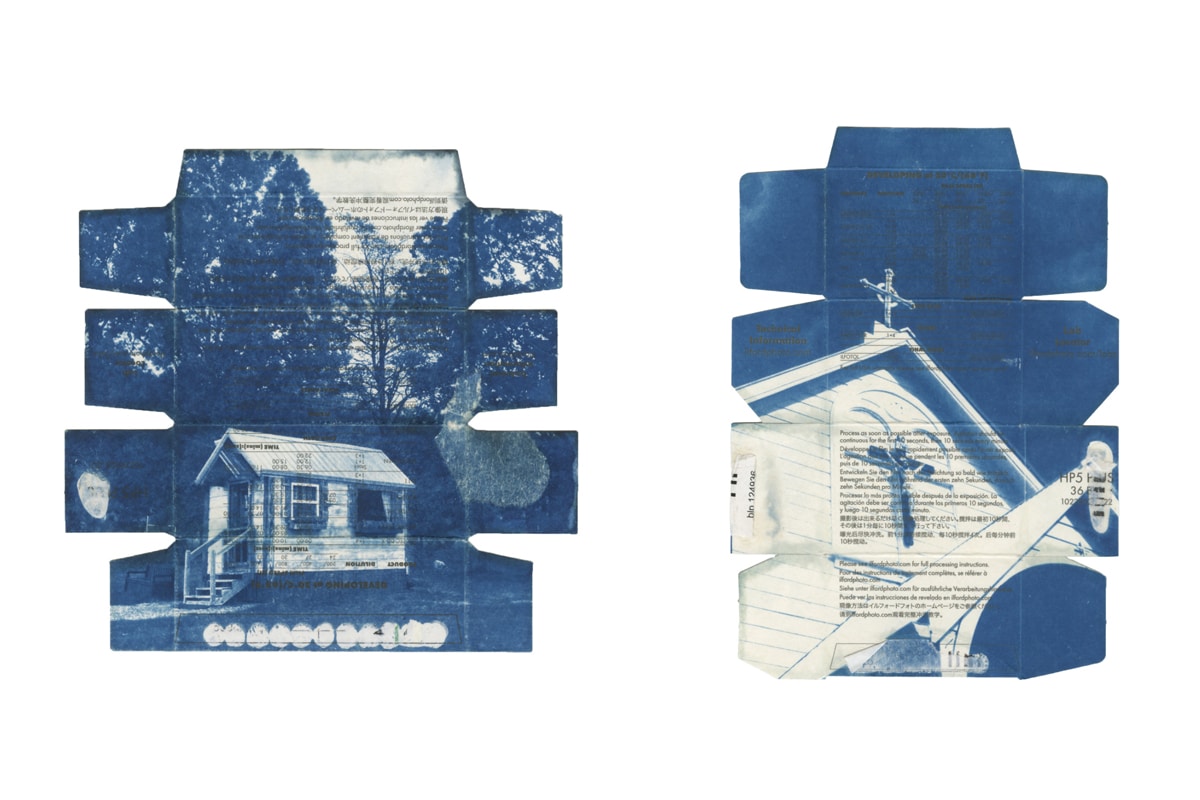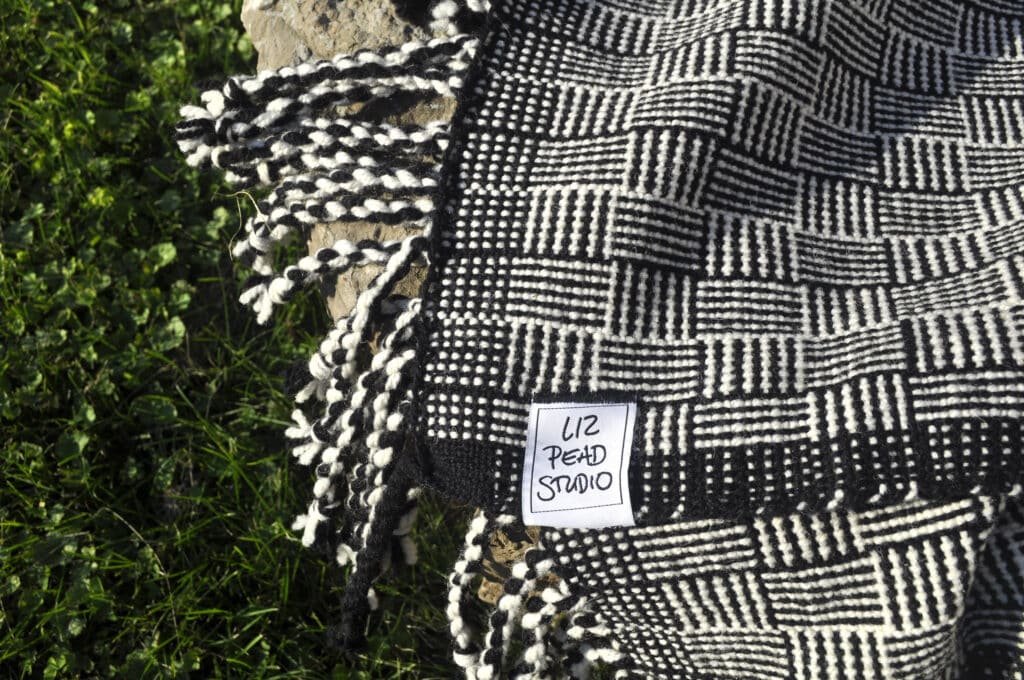
I am Liz Pead and I am a master weaver.
I started design school in 1990 after I graduated high school. I went to the New Brunswick College of Craft in Design and I studied fabric surface design, which is printing, dyeing, and batik (which is like screen printing on fabric).
That was where I was first introduced to weaving. By 1995, I’d graduated with two diplomas in Fabric Surface Design in 1993 and another in Textiles, Weaving in 1995. That same year I started weaving for a small company in Saint Andrews By The Sea, New Brunswick called Cottage Craft Weavers. I learned how to weave a lot of production blankets in a short period of time. I’ve been weaving ever since.
Another side of my story is that while I worked as a weaver, I also had a concurrent identity as a gallerist for ten years. At that point I moved to Toronto and immediately enrolled in what was then the Ontario College of Art, now OCAD University. I studied painting and drawing. Through my time at OCADU I took all of my interests: Canadiana, sustainability, materiality, and landscape, and I invented a new painting language using recycled, broken hockey gear to make mixed media paintings in the style of the Group of Seven.
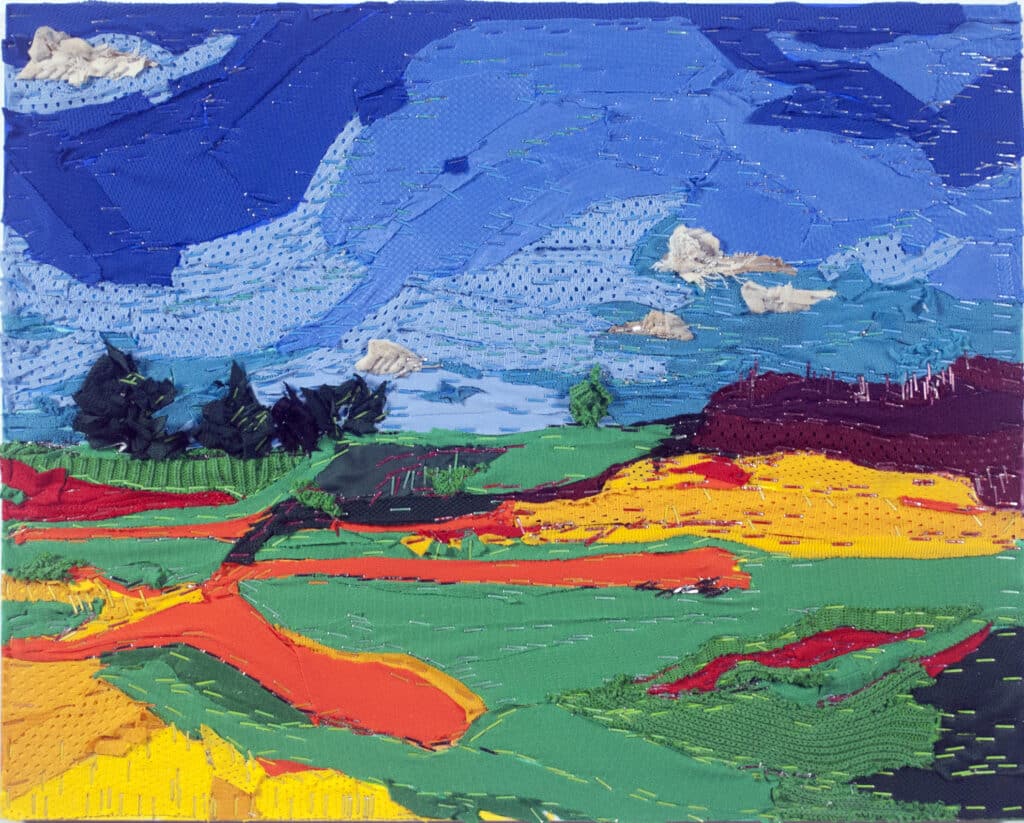
I’m a hockey mom. As I coached my kids’ teams I would, literally, pick old socks and jockstraps out of the garbage cans of arenas. I’d take them back to the studio and make fine art paintings out of them. So it’s that idea that I’m making high art, but it’s sustainable because this stuff isn’t going into landfill. I’m recycling it and using it for my work. In everything I do, sustainability is key.
Studio Evolution
Over years of developing this fine art practice, I kept coming back to weaving. Weaving is the thing that the universe keeps bringing back to me and saying, ‘Liz, you’re really good at this and the world needs this.’ Wool is also a sustainable thing to carry forward into the future. After years of trying to work recycling and sustainability into my work, weaving makes sense on so many levels. I get to work with sustainable farms and producers. It all just fits. My parents were sustainable farmers so it’s a part of my DNA.
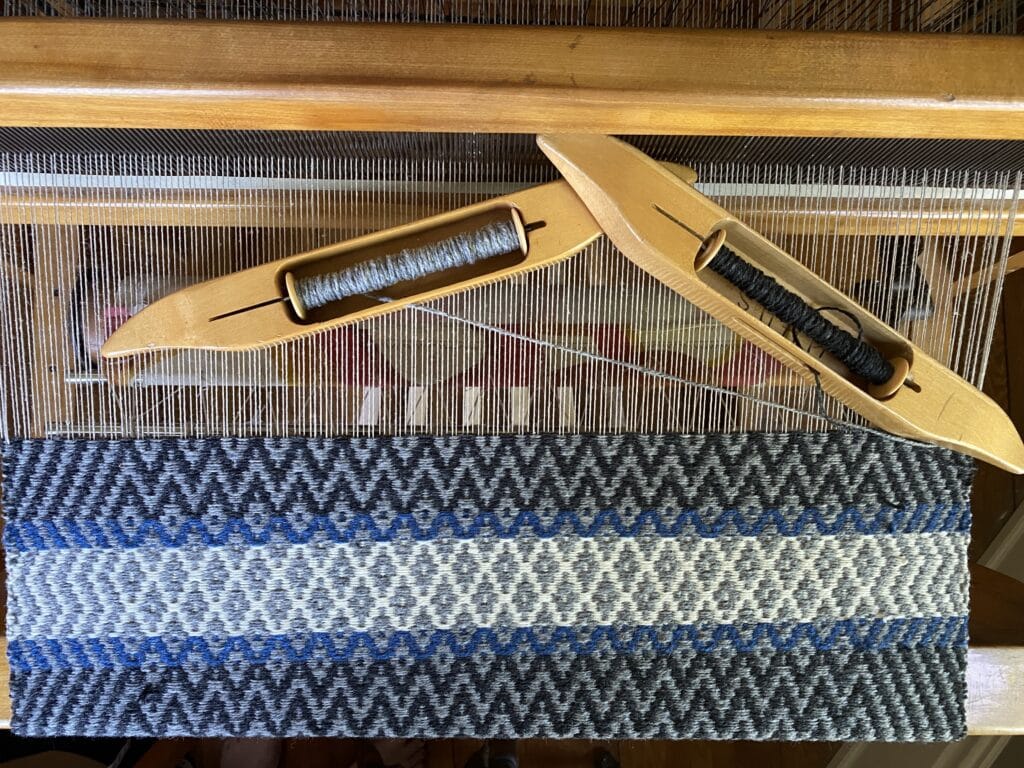
I went back to weaving in a major way in 2018. Then in 2020, the pandemic changed all of us. Being in the studio on the daily without the distractions of being a hockey mum, book clubs, museums, and galleries, allowed for a lot of quiet work to get done. You have a lot of time to think when you are throwing a shuttle back and forth across a warp. I wove a lot of woolen blankets at this time. I see all the blankets I weave as ‘extended hugs’ and in a time when we couldn’t share a meal with friends or family, more than a few of these wooly hugs went out to hold those places.
I posted a lot on Instagram about the process and just generally, what I was working on that day in the studio. I started to need a better way to organize my products, sales and shipping, and my Format website did that seamlessly. It takes about the same amount of effort as posting on Instagram, except instead of likes, your work gets to find its forever person, and the artist gets paid. That’s a pretty big win-win. One that helped me envision the next steps I would be taking.
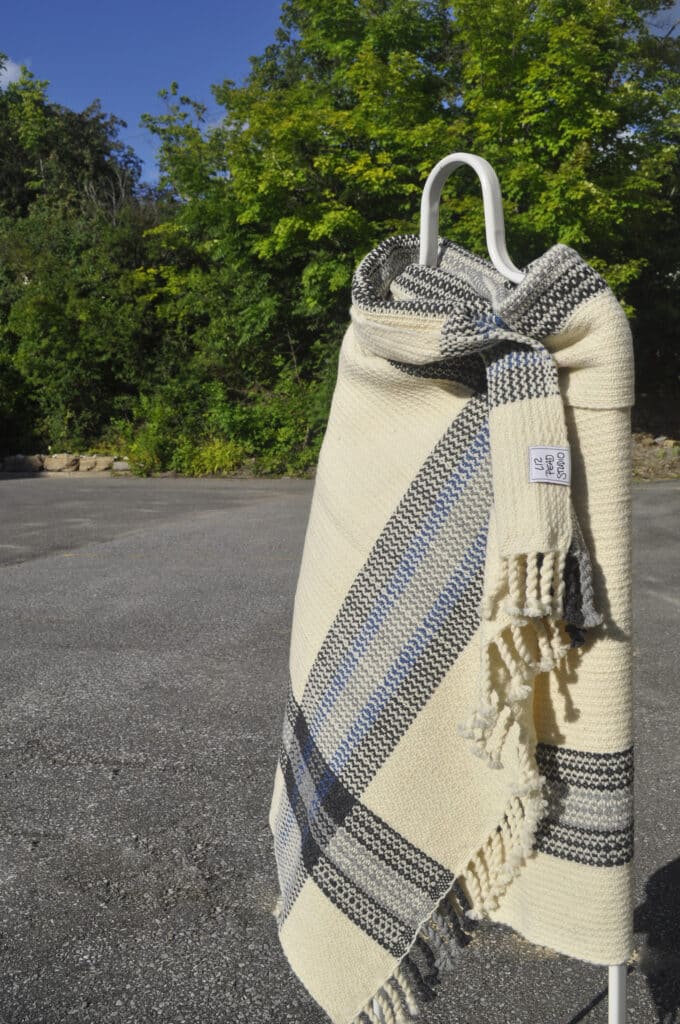
Topsy Farms Partnership and Production Weaving
In 2022, there was a nationwide design competition by Topsy Farms. They’re a bunch of hippies that in 1972 decided to live on a commune on Amherst Island near Kingston, Ontario. They have been sustainably farming their land and have a huge flock of sheep. The folks at Topsy have been making blankets for some time from their wool, but they wanted a design of their own. So, they held this competition. When I heard about it the first thing I did was jump in the car and go right down and visit them. I took pictures. I did sketches. And then I came home and I wove a blanket. It was one blanket but it had twelve designs within one blanket as a sampler.
And I won! They picked a design from my sampler and then we worked on it. Now we’re in the production stage, and we’ve been marketing all over North America.
The partnership with Topsy opened up a whole new side of my business. There are only four looms in the world that can make this type of king-sized woolen blankets. This got me thinking–why not handle the production end of things myself?
I realized I could probably sustain building a studio in which I had a production loom. So I have been chasing down a production loom for the last year and right now I’m in the final steps of acquiring one. A production loom will enable me to make thousands of blankets a year vs. the two hundred or so a year that I’m capable of producing by hand.
So one side of it is weaving and setting myself for the next stage of my business there, and the other thing is good design and providing design services. There’s a lot of really okay design out there, but I’m coming at it with a fine arts degree, two design diplomas and all of my years’ experience.
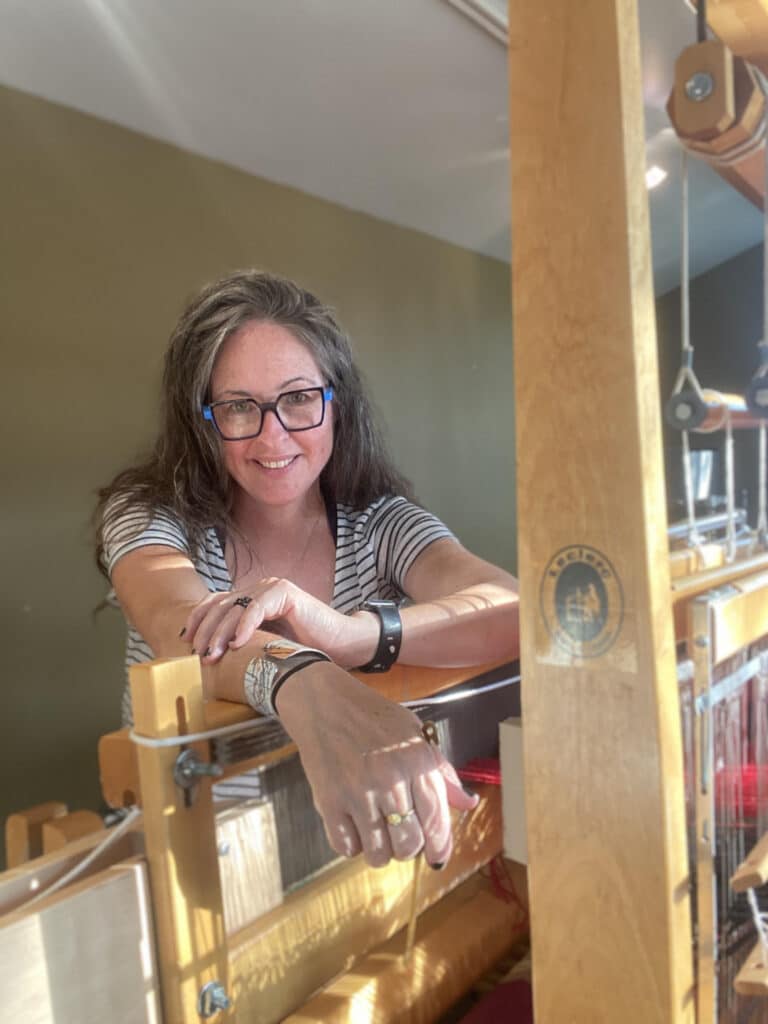
Global Research and Sustainable Trends
Over the last year, I have had the opportunity to travel and research textiles. Some accidental; while on a hockey tournament in Bosnia, Serbia and Hungary, and other places specific to textiles–Italy, the Carolinas, and Cleveland. So far 2023 has been all about ‘wool-gathering’, as I am literally taking on the information I will need to build the technical side of my business, as well as meeting so many other artists, designers and weavers.
There is a global shift towards sustainability. When I was attending ITMA in Milan, everyone had some kind of new and green technology; be it lowering the water consumption in the dye vats, heat recovery units for finishing machinery, or even more efficient weaving looms–saving resources in the long run makes good business sense.
I want to work with local wool producers, and bring the products and talents of Canadian Design and Art to the International markets and attention. I don’t know what that journey will look like, but I know that I will be able to build a website with Format that is nimble enough to handle whatever I have on the looms.
Enjoy and purchase Liz Pead Studio’s work via her online portfolio website, created with Format, and follow her on Instagram to see behind the scenes and hear the latest shop updates.
